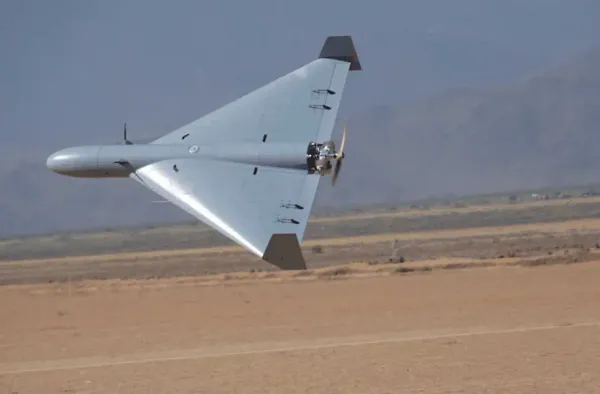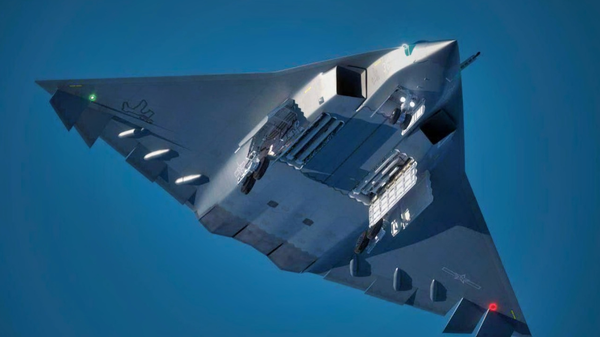South Africa's aviation industry, once a symbol of the country's economic prowess, currently navigates turbulent skies. The collapse of South African Airways (SAA), the national carrier, and broader economic strains have created a perfect storm, threatening the industry's survival.

SAA's Demise
SAA's story contains mismanagement, financial losses, and government bailouts. Years of operational inefficiencies, corruption scandals, and mounting debt led to its business rescue in 2019 and subsequent bankruptcy in 2020.
These internal issues had a domino effect, impacting the entire aviation ecosystem. SAA's extensive network connected South Africa to critical regional and international destinations, serving as a crucial feeder for other airlines and facilitating tourism and trade. Its grounding left a gaping hole, disrupting travel routes and impacting passenger numbers.
Corruption has plagued SAA for years, with the airline overpaying for essential items such as tires, catering services, and plane leasing agreements, all the way to board members and employees receiving corrupt payments of up to R1.8 billion ($95.2 million). Unfortunately, South Africa has been struggling with corruption since the 2000s. Still, many organizations have been clamping down on government corruption, such as the Special Investigating Unit (SIU), whose primary focus is anti-corruption, forensic investigation, and litigation.

Corruption Cases
While many of these corruption cases are still in progress, a clear picture can be seen. The airline has been filled with improper management, ultimately leading to its demise in 2020.
SAA issued a tender worth up to R375 million ($19.9 million) for tyers, which did not comply with the Public Finance Management Act (PFMA), and subsequently, one former board member was fined and lost their South African Institute of Chartered Accountants(CA) certification.
On another note, a staggering R1.8 billion ($95.2 million) hangs in the balance, with the Special Investigating Unit (SIU) uncovering "multiple irregularities and corrupt relationships" between third parties, SAA employees, and board members. Investigators are following the money trail, subpoenaing bank statements to expose the alleged illicit flow of funds. This probe is nearing completion, with potential criminal charges looming for around ten entities and over R1 billion targeted for recovery through litigation.

Another red flag appears as a security contract, irregularly awarded and inexplicably extended eight times, racking up irregular expenditure of R953 million ($5 million) between 2008 and 2020. The SIU's investigation is ongoing, awaiting two crucial affidavits before finalizing its findings. Once complete, expect potential recovery efforts and criminal referrals for those involved.
There was also an Airbus swap transaction. While initially presented as a cost-saving measure to replace A320s with leased A330s, the R824 million swap with Airbus raises red flags. The SIU found no evidence of promised financial benefits to SAA, including pre-delivery payment reimbursements. Additionally, investigators identified numerous irregularities and non-compliance in the agreement, potentially implicating an SAA employee and board member. The ongoing probe aims for completion by April 2024, with possible criminal referrals.
Irregularities plagued another contract involving an R185 million cargo aircraft lease. Unauthorized additions to the agreement raise concerns about transparency and compliance. To address this, a senior counsel is pursuing the cancellation of the contract and recovery of lost funds through the Special Tribunal.

Adding to the list: in 2015, a seemingly straightforward catering tender for the OR Tambo lounge took a concerning turn. Despite awarding the contract through a tender process, the SAA board inexplicably canceled it and reassigned the service to a subsidiary without following standard procedures. The SIU aims to recoup the R85 million ($4.5 million) spent and pursue potential criminal charges against entities and individuals involved.
Economic Headwinds
South Africa's economic struggles further exacerbate the aviation industry's woes. The country faces slow economic growth, high unemployment, and a depreciating currency. This translates to reduced consumer spending, dampening demand for air travel. Additionally, rising fuel costs, a global challenge, disproportionately impact airlines with longer flight routes, like those operating in South Africa.
The crisis extends beyond SAA. Other airlines, including low-cost carriers, face similar challenges. Intense competition, particularly from Middle Eastern airlines, pressures profit margins. Additionally, South Africa's airport infrastructure requires modernization to handle increased passenger volumes efficiently. Delays, congestion, and high airport charges further deter airlines and travelers.

Loadshedding
Adding to the countless challenges plaguing South Africa is the ever-present wraith of loadshedding. Rolling blackouts, implemented by national power utility Eskom due to insufficient electricity generation, which is being caused by corruption and improper management, disrupt operations across the sector, creating additional headaches for airlines, airports, and passengers alike.
Loadshedding directly impacts airport infrastructure, disrupting essential services like baggage handling, check-in systems, and air traffic control. During blackouts, these systems rely on backup generators, but their capacity is often limited, leading to delays and cancellations. Runway lighting can also be affected, posing safety concerns and further restricting operations. Routine maintenance becomes a significant challenge during loadshedding. Sensitive equipment requires stable power for proper checks and repairs, and power outages can stall these processes and potentially damage equipment due to sudden shutdowns.

This can lead to longer turnaround times for aircraft, impacting airline schedules and operational efficiency. Fuel supply at airports can also be compromised by loadshedding, South Africa relies heavily on imported fuel, and disruptions at pumping stations due to power outages can create fuel shortages, jeopardizing flight schedules and potentially grounding aircraft.
Passengers bear the brunt of loadshedding's impact. Flight delays and cancellations are common, causing frustration and disruption to travel plans. Additionally, airport amenities like shops, restaurants, and lounges may be forced to close during outages, further inconveniencing passengers and adding another layer of financial strain to the already struggling aviation industry as airlines incur additional costs for fuel generators, backup systems and maintenance disruptions. This can further erode profit margins and limit their ability to offer competitive fares.

A Perfect Storm
These factors intertwine, creating a multiplier effect. SAA's collapse weakens the industry's competitiveness, while economic woes reduce demand. This, in turn, makes it harder for airlines to invest in modernizing infrastructure and compete effectively, perpetuating the cycle.
Despite the challenges, there are glimmers of hope. The South African government is committed to reviving SAA, albeit in a restructured form. This could involve attracting new equity partners, streamlining operations, and focusing on profitable routes. Economic reforms to boost growth and job creation could also indirectly benefit the aviation industry.
Industry consolidation through mergers and acquisitions could be another path forward. This could lead to economies of scale, route optimization, and improved operational efficiency. However, careful consideration is needed to ensure competition is allowed. Modernizing airport infrastructure is crucial. Upgrading facilities, streamlining processes, and reducing charges can attract more airlines and improve passenger experience. Public-private partnerships could be explored to accelerate these investments.

Technological advancements can play a significant role in the industry's recovery. Airlines can leverage data analytics to optimize pricing, personalize offerings, and improve operational efficiency. Additionally, exploring sustainable aviation technologies can reduce carbon emissions and operating costs.
South Africa's aviation industry faces a daunting task, but with concerted efforts, it can weather the storm. Restructuring SAA, fostering economic growth, investing in infrastructure, and embracing technology are vital steps. By working together, stakeholders can ensure the industry retakes flight.
Delta Sets Firm October 2026 Launch for Historic Atlanta–Riyadh A350 Service » U.S. Government Admits Liability in Fatal Mid-Air Collision » IndiGo Unveils Delhi–London Expansion and First A321XLR Launch »
Comments (0)
Add Your Comment
SHARE
TAGS
INFORMATIONAL South Africa South African Airways Finance Economics SAA Johannesburg Bankruptcy Infrastructure PoliticsRECENTLY PUBLISHED
 US Air Force to Launch New Experimental One-Way Attack Drone Unit
In a move that signals a tectonic shift in American airpower, the U.S. Air Force is preparing to stand up its first-ever experimental unit dedicated solely to "One-Way Attack" (OWA) drones.
NEWS
READ MORE »
US Air Force to Launch New Experimental One-Way Attack Drone Unit
In a move that signals a tectonic shift in American airpower, the U.S. Air Force is preparing to stand up its first-ever experimental unit dedicated solely to "One-Way Attack" (OWA) drones.
NEWS
READ MORE »
 Pentagon Alarm: China’s ‘Tailless’ 6th-Gen Fighter Prototypes Are Already Airborne
The Pentagon’s annual 2025 China Military Power Report (CMPR), released this week, has sent a clear signal to Capitol Hill: the race for air dominance is no longer a one-horse race. For the first time, the U.S. Department of Defence has formally acknowledged the rapid progress of China’s sixth-generation fighter programs, highlighting the successful flight testing of multiple "novel tailless" stealth prototypes.
NEWS
READ MORE »
Pentagon Alarm: China’s ‘Tailless’ 6th-Gen Fighter Prototypes Are Already Airborne
The Pentagon’s annual 2025 China Military Power Report (CMPR), released this week, has sent a clear signal to Capitol Hill: the race for air dominance is no longer a one-horse race. For the first time, the U.S. Department of Defence has formally acknowledged the rapid progress of China’s sixth-generation fighter programs, highlighting the successful flight testing of multiple "novel tailless" stealth prototypes.
NEWS
READ MORE »
 No "Mate's Rates" in the Sky as Qantas Bans All Staff (Including CEO) From New A350 First Class
In a move that signals just how "ultra" Qantas intends its new ultra-long-haul product to be, the Flying Kangaroo has made a rare and dramatic policy shift: barring all staff from its upcoming Airbus A350 First Class cabins.
NEWS
READ MORE »
No "Mate's Rates" in the Sky as Qantas Bans All Staff (Including CEO) From New A350 First Class
In a move that signals just how "ultra" Qantas intends its new ultra-long-haul product to be, the Flying Kangaroo has made a rare and dramatic policy shift: barring all staff from its upcoming Airbus A350 First Class cabins.
NEWS
READ MORE »



